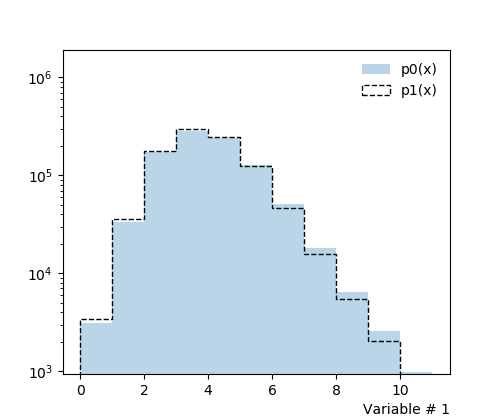Approximating Likelihood Ratios with Calibrated Discriminative Classifiers
In many fields of science, generalized likelihood ratio tests are established tools for statistical inference. At the same time, it has become increasingly common that a simulator (or generative model) is used to describe complex processes that tie parameters $\theta$ of an underlying theory and measurement apparatus to high-dimensional observations $\mathbf{x}\in \mathbb{R}^p$. However, simulator often do not provide a way to evaluate the likelihood function for a given observation $\mathbf{x}$, which motivates a new class of likelihood-free inference algorithms. In this paper, we show that likelihood ratios are invariant under a specific class of dimensionality reduction maps $\mathbb{R}^p \mapsto \mathbb{R}$. As a direct consequence, we show that discriminative classifiers can be used to approximate the generalized likelihood ratio statistic when only a generative model for the data is available. This leads to a new machine learning-based approach to likelihood-free inference that is complementary to Approximate Bayesian Computation, and which does not require a prior on the model parameters. Experimental results on artificial problems with known exact likelihoods illustrate the potential of the proposed method.
PDF Abstract

